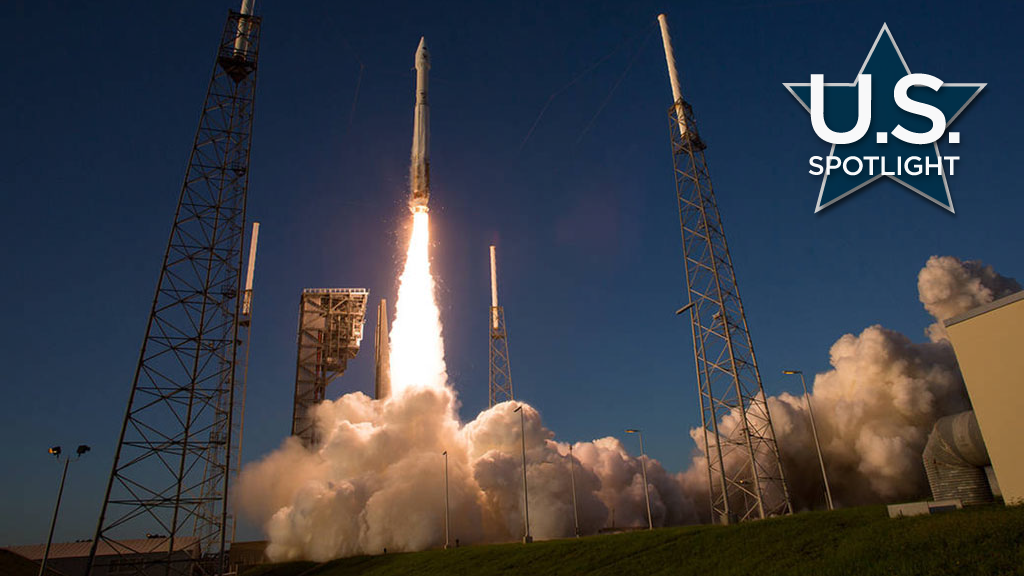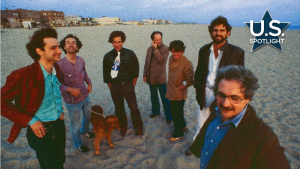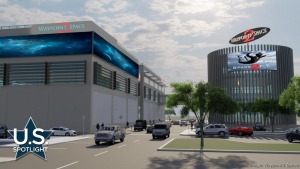Leadership in space exploration and technology is a matter of American pride.
According to McKinsey Global, the country is home to 40 per cent of all global civil space funding, twice that of any other country.
And no state in the Union is more connected to space than Texas. After all, it’s where the Apollo astronauts trained for the first lunar landings in the late 1960s.
Texas remains home to some of the most exciting developments in space exploration since that time, with 17 of the world’s top 20 aerospace manufacturers having a presence in the state.
“We have finally come to a stage where the dreams around space from childhood are turning into reality,” says a Citigroup report. “Space tourism could really become more accessible to the average person. Mining on the Moon or on an asteroid is seriously being considered. And powering the Earth with solar power collected from satellites is on the horizon.”
The report suggests the space economy could generate as much as $1 trillion in annual sales by 2040, up from the current $370 billion.
The U.S. Space program has its home in the area around the Johnson Space Centre (JSC) southeast of Houston. Founded in 1961, the JSC today occupies 1,600 acres, has 11,000 employees and an annual budget of over $5.5 billion.
The growth and diversity of space activity cited by Citigroup is spawning new private investments in Texas.
Axiom Space has announced plans to build a 14-acre headquarter campus at the 400-acre Houston Spaceport, just a short drive from the JSC. Axiom will train private astronauts and begin production of its Axiom Station, “the world’s first free-flying, internationally available private space station that will serve as humanity’s central hub for research, manufacturing and commerce in low Earth orbit.”
Axiom Space was founded in Houston in 2016 by Michael Suffredini, NASA’s ISS program manager from 2005 to 2015, and space entrepreneur Kam Ghaffarian. The company currently employs more than 400 people, most working at its current Houston facilities, and plans to grow that number to 1,000 by 2025.
Axiom says its Houston Spaceport property will be developed in two phases totalling over 320,000 square feet.
Phase I will be completed in April 2023 and will include 106,000 square feet of assembly integration and test facilities. The second phase will add facilities for labs, mission operations and training, aircraft operations and office space.
Continued expansion of the space industry around Houston demonstrates how the region is building on its strong foundation, said Bob Mitchell, president of the Bay Area Houston Economic Partnership.
“The synergies now being realized at the Houston Spaceport between Houston’s dynamic industry partners, its world class training and academic providers and its far-sighted community investors are not only benefitting Axiom but will only get stronger over time. We are all in this together and the best is yet to come.”
Even the JSC is expanding, announcing in October the addition of new structures to the Space Center Houston, the official visitor center of NASA’s JSC. Since opening in 1992, Space Center Houston draws an estimated one million visitors annually. The new buildings, to be called the Lunar Mars Immersive Experience and Learning Center, will include simulated cosmic terrains of Mars and the Moon, modular surface labs and early education learning centers focussed on math, science and technology.
The Texas space industry received considerable publicity when Elon Musk chose the state as home for his SpaceX initiative in 2012.
Today, SpaceX has a commercial launch site called Starbase, located in Boca Cica Beach near Brownsville. This first commercial rocket launch site, developed in 2019, employs about 1,400. Space X has teamed up with NASA’s Artemis program to carry out future missions to the Moon and Mars using its Starship launch vehicle, capable of carrying over 100 metric tons into orbit.
SpaceX is expanding its Texas footprint further, announcing a 521,500-square-foot shell building to be completed in July 2023.
Another private aerospace company, Blue Moon, owned by Amazon billionaire Jeff Bezos, is taking on space tourism by developing and building low-cost systems for human flight from a site in Van Horn in West Texas.
The state’s space industry is strong and will likely get stronger. Texas is ranked above all others on PricewaterCooper’s 2021 Aerospace Manufacturing Attractiveness Rankings Report, which ranks states based on factors including cost, economy, geopolitical risk, infrastructure, labour, industry, and tax policies.











Recent Comments